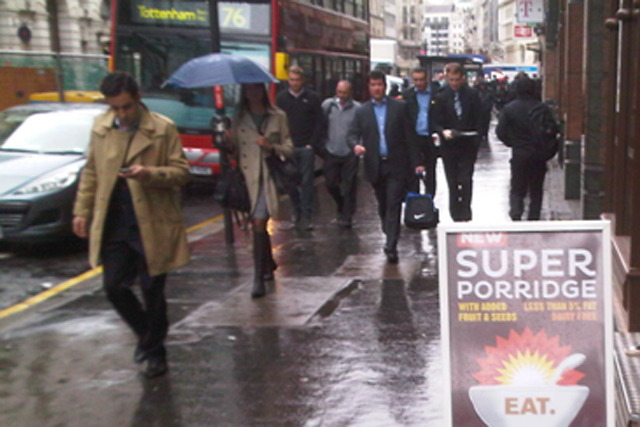White space is the marketing term for unmet needs. White space is the place where business grows; without growth there is only stagnation, so the search for white space matters for everyone and is a driving concern for our clients.
When in 1857 Joseph Gayetty manufacturered the first toilet paper, he brought a new market into existence overnight - segmentation and focus groups were not required.
Most, if not all, modern industries grew without any systematic enquiry into latent human needs. The applications were obvious and as soon as the technology was ready the markets blossomed. The needs were pressing; they required no investigation.
In a world where our daily physiological needs are met, the meaning of white space changes. White space becomes the undiscovered world of evolving psychological needs.
Facebook for example thrives on our - or our kid's - need for social affirmation that comes with 532 friends. It is a latent itch that technology has provided a way of scratching.
The porridge market is a less glamorous but in a sense more surprising example of ‘evolving psychological needs’. Why has porridge been growing so strongly of late? A demand for more real and healthy food in a world that is ever more detached from nature?
Sure, oatmeal is a kind of super food with its smart, slow burn sugars. But beneath that there is the drive towards simple, plain food, infused with memories of maternal love - warm comfort in a recessionary world.
There is a tension between these needs, the progressive and regressive, but they don’t cancel each other out, they enrich each other and create something new. We progress by finding better, newer ways of gratifying some of our most primitive wants.
We can see this regressive-progressive tension playing out in many fields. In technology, consumers have made it abundantly clear that they want to be treated like kids not adults.
We want simple buttons and immediate gratification; we want to use fingers, not a keyboard, to touch the picture. Gone are the days that you had to be smart to work a computer.
Contraception is another good example. Societies strove for centuries to channel sexual urges into socially stable institutions. Then with the pill we were able to ‘revert’ to something more like the state of nature and the carefree pursuit of pleasure.
With sat nav we hardly even need to know where we are going. Driverless planes, trains and cars are all realities, freeing us from the burden of mastering any kind of navigational skill.
So we use the most advanced capabilities of our civilisation to develop tools, which result in us shedding our ancient capabilities. And we have been doing this for a long time.
Anatomically modern humans have been around for 30,000 years and since then we have given up most of the capabilities required of a ‘free range human’ - we are weaker, smaller brained and have worse eyesight than our ancestors. But few of us would gladly step back across the ocean of time. We feel we have progressed. And of course we have.
The ocean between us and our ancestors is composed of molecules of technology - we have an instinct for it. As a snail grows a shell, we grow tools. First stone axes, now smartphones. Life is hard and technology is the stuff we do to make it easier, and 30,000 years on, we have a lot of it.
An alien landing on Earth, who was taken to our leader, would probably be disappointed. From the aesthetic alien’s point of view, humans might seem like ‘the sloth in the machine’. He might remark that the typical BMW driver is rather less handsome than the average BMW, the Shard, so much more impressive than its occupants.
We might not be the fine specimens we once were, our glories transferred from our physical bodies to our machines. But it is still the inner sloth that sits in the drives seat. And where will he drive us?
The classic answer, coloured by our liberal optimist faith in inevitable progress, is that we travel toward ‘self actualisation’, a kind of upward and improving movement towards realising our better selves.
And to be fair, humans have made a lot of progress; a short viewing of ‘Spartacus Gods of the Arena’ will remind you of the joys of not being enslaved to an upper middle class Roman.
Or for something more edifying, look at Wikipedia as a living demonstration of the mass hunger for knowledge. But not knowledge at any cost, we want knowledge at no cost. No price at all in terms of money, or memory, or movement.
So we do want to explore, learn and develop. But this drive sits alongside a deep urge for ever simpler and more comforting experiences, which we can be slow to acknowledge but which are essential for an innovation to make it from research proposition to consumer heuristic.
People looking for white space should acknowledge the tension between our conflicting needs: the appetite for new experience, alongside our hardwired requirement for simplicity and comfort.
But tension does not mean contradiction. Both are in fact engines of progress, deep drives that together determine how we shape the world around us.
The intellectual challenge is that white space exists at the nexus of apparently conflicting needs. But that is precisely where opportunity lies: in infantile technology and in smart breakfast.


